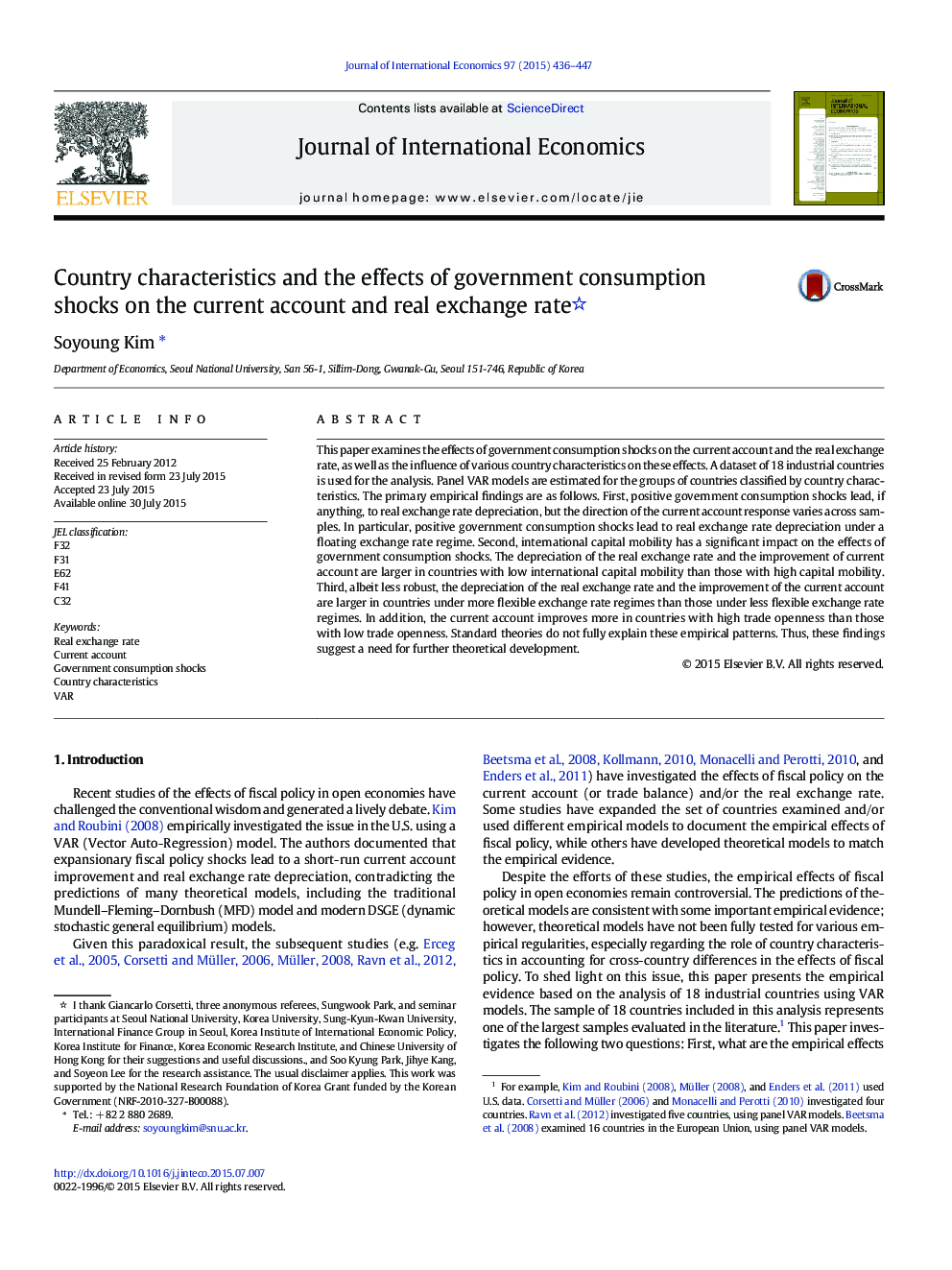| Article ID | Journal | Published Year | Pages | File Type |
|---|---|---|---|---|
| 962531 | Journal of International Economics | 2015 | 12 Pages |
Abstract
This paper examines the effects of government consumption shocks on the current account and the real exchange rate, as well as the influence of various country characteristics on these effects. A dataset of 18 industrial countries is used for the analysis. Panel VAR models are estimated for the groups of countries classified by country characteristics. The primary empirical findings are as follows. First, positive government consumption shocks lead, if anything, to real exchange rate depreciation, but the direction of the current account response varies across samples. In particular, positive government consumption shocks lead to real exchange rate depreciation under a floating exchange rate regime. Second, international capital mobility has a significant impact on the effects of government consumption shocks. The depreciation of the real exchange rate and the improvement of current account are larger in countries with low international capital mobility than those with high capital mobility. Third, albeit less robust, the depreciation of the real exchange rate and the improvement of the current account are larger in countries under more flexible exchange rate regimes than those under less flexible exchange rate regimes. In addition, the current account improves more in countries with high trade openness than those with low trade openness. Standard theories do not fully explain these empirical patterns. Thus, these findings suggest a need for further theoretical development.
Related Topics
Social Sciences and Humanities
Economics, Econometrics and Finance
Economics and Econometrics
Authors
Soyoung Kim,
